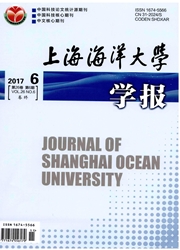

 中文摘要:
中文摘要:
近几十年随着传统渔业资源量的下降,短生命周期的鱿鱼类产量出现持续增加,并已成为重要的渔获对象。由于鱿鱼类为短生命周期鱼类,对环境变化极为敏感,这一特点使得传统基于种群动力和生物学过程的资源量评估模型并不能很好地估算其资源量,为了了解环境因子和鱿鱼类资源量变化的关系,从研究方法和内容上对其研究现状进行了回顾,目前的研究已经能够在一定程度上解释环境因子对鱿鱼类资源量变化的影响机制,但是还不能完全利用环境变量来预测资源量的变化;本文还归纳了主要经济鱿鱼类栖息环境的特点,以及环境因子对其生活史各个阶段(孵化、仔稚鱼、成鱼和产卵)和资源补充量的影响,总结了目前研究遇到的问题和不足,并提出了今后研究重点应放在环境因子如何影响鱿鱼类生活史阶段中的孵化到仔稚鱼过程,从而能够提高对鱿鱼类补充量大小的估测精度,为其资源评估的进一步发展提供全面的理论基础。
 英文摘要:
英文摘要:
Over the past decades,with the decline of economic finfish stocks around the world,the short-life cycle squid has become one of important fishing targets and its total catches keep on increasing.Becasue the short-life cycle squid is sensitive responding to environmental changes with great abundence fluctuations,which sometimes reduces the recruitment to the stocks,the assessment and management do not work well based on traditional population dynamic models.In this paper,we review the development of methods and models used in this field,current researches could explain the mechanism of how environmental factors influence the stock of squids to a certain extent,however they could not predict the change of stock based on environmental factors successfully.and we also conclude the characteristics of squid habitat and the influences of environmental changes on squid life cycle(post-hatching,larval,growth and spawning) and its recruitment.Finally,we point out the problem for the current research,and highlight the future work.We should focus on the life stage from post hatching to larval with high effect by marine environment so that we can improve the estimate of recruitment of squids and provide comprehensive theoretical basis for squid stock assessment.
 同期刊论文项目
同期刊论文项目
 同项目期刊论文
同项目期刊论文
 期刊信息
期刊信息
